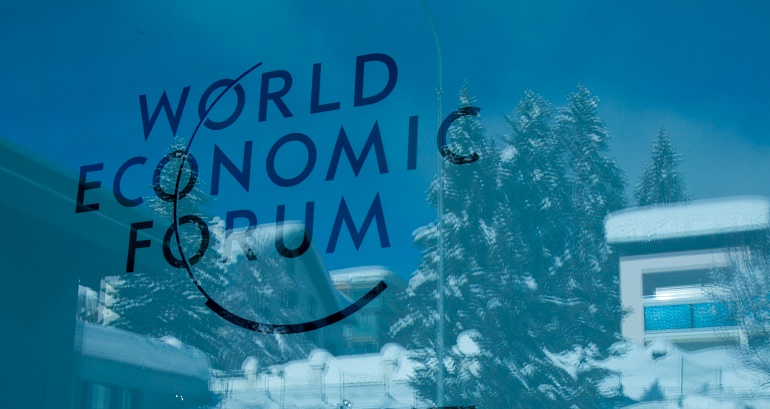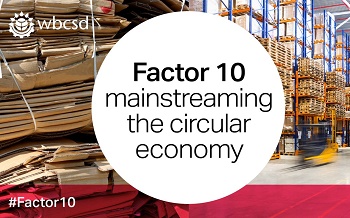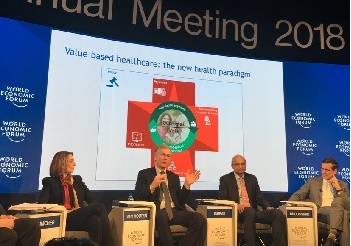Philips, Arcadis, Rabobank and DSM join WBCSD Factor10 initiative on circular economy in Davos
 Four Dutch companies are part of a group of 30 worldwide leading companies that join the Factor10 initiative to implement the circular economy, launched by the World Business Council for Sustainable Development (WBCSD) at the World Economic Forum in Davos, Switzerland.
Four Dutch companies are part of a group of 30 worldwide leading companies that join the Factor10 initiative to implement the circular economy, launched by the World Business Council for Sustainable Development (WBCSD) at the World Economic Forum in Davos, Switzerland.
Dutch companies involved, are industrial firms Philips and DSM, consultancy firm Arcadis and financial service provider Rabobank.
The Factor10 initiative aims to move to a system where waste is eliminated.
 #Factor10 initiated to mainstream the circular economy.
#Factor10 initiated to mainstream the circular economy.
Regenerative by design
Factor10 and the circular economy aim to reinvent the way that business produces, uses and disposes of the materials that make up global trade by moving away from the traditional “take-make-dispose” economic model to one that is regenerative by design.
Collectively responsible for 1.3 trillion US dollar in annual revenues, the WBCSD considers the companies in Factor10 to represent a powerful business effort scale up momentum for circular economy solutions.
Achieving SDG
According to Accenture, the circular economy represents a USD $4.5 trillion opportunity and will be critical for achieving the UN Sustainable Development Goals.
Factor10 wants to capture these economic and sustainability benefits by implementing scalable solutions - where resources are used wisely, processes create the greatest possible value and nothing is wasted.
 Present in Davos was CEO Frans van Houten (middle) at Philips, one of the involved companies, advocated to tear down the silos in healthcare.
Present in Davos was CEO Frans van Houten (middle) at Philips, one of the involved companies, advocated to tear down the silos in healthcare.
‘We're moving beyond a niche approach,’ said Andrea Brown, Director of Circular Economy at WBCSD. ‘Through Factor10, we can move circular economy beyond the group of early adopters, into the early majority of global supply chains - opening new ways for companies to collaborate on scalable business models to gain competitive advantage.’
Three focus areas
Companies are getting started right away. This year, the initiative will focus on three priority areas:
• Developing transformative cross-value chain solutions that unlock circular opportunities for business
• Generating circular economy knowledge to help business understand the landscape, best practices and leading examples
• Amplifying the business voice globally.
To date, companies involved include: Accenture, Arcadis, ArcelorMittal, BASF, BCG, BMW Group, CRH, Dow, DSM, Enel, ExxonMobil, EY, Honda, IFF, KPMG, Michelin, Navigant, Novartis, Philips, PWC, Rabobank, Renault, SABIC, Saint-Gobain, Solvay, Stora Enso, Veolia, Yara, Yokogawa.
Last year WBCSD released the publication 8 Business Cases to the Circular Economy - helping business accelerate growth, enhance competitiveness and mitigate risk,
This news item was originally published on the website of World Business Council for Sustainable Development (WBCSD).
Read also on this website
• ReCirc Singapore aims at joint development of resource recovery technology for circular economy, 19 December 2017
• AIWW 2017: Game-changing WWTP-technology CoRe Water launched at Aquatech, 2 November 2017
• AIWW 2017: Cellvation wins Aquatech Innovation Award for recovery of toilet paper, 1 November 2017
More information
World Business Council for Sustainable Development (WBCSD)
Geneva, Switzerland
+41 22 839 3100
www.wbcsd.org



